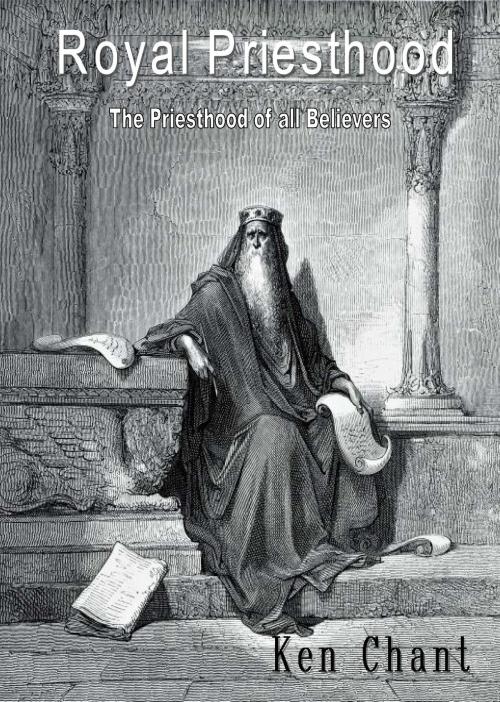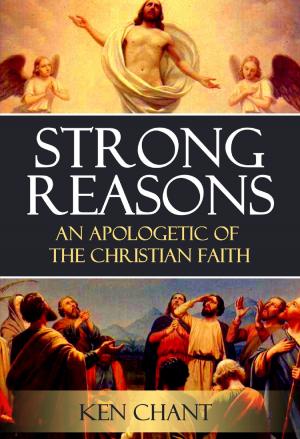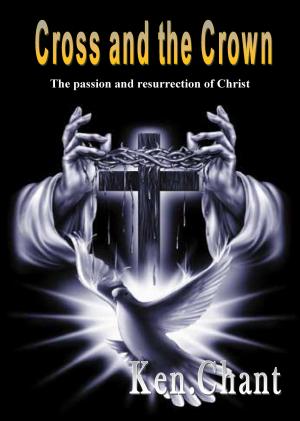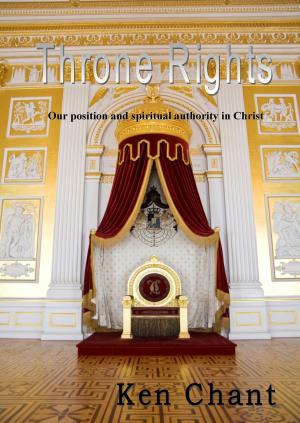| Author: | Ken Chant | ISBN: | 9781310155215 |
| Publisher: | Vision Colleges | Publication: | February 10, 2015 |
| Imprint: | Smashwords Edition | Language: | English |
| Author: | Ken Chant |
| ISBN: | 9781310155215 |
| Publisher: | Vision Colleges |
| Publication: | February 10, 2015 |
| Imprint: | Smashwords Edition |
| Language: | English |
Scripture says that we are all “Royal Priests” in the calling of God.
Therefore, the highest dignity of the priesthood, the right to minister the word and the sacraments, belongs to every Christian, even if in practice, that right will normally be restricted to those to whom the church itself gives the office. So far as their right as Christians is concerned, every believer is fit and eligible for any office in the church. All are priests, not just those who belong to the ordained clergy. Thus the Greek word for “priest” (hiereus) occurs more than 30 times in the NT, but is not once used in an exclusive sense of a Christian minister.
We are all members of the one Body, serving the one Lord, sharing one Faith and one Baptism. Before the throne of God there is no distinction of race, sex, or class, for all have equal access to the holiest by the blood of Christ Ep 4:4-6; Ga 3:288; He 10:19-23). At once we encounter one of the arresting anomalies of the gospel. Christian life begins as a personal response to the word of God. We are drawn to the Cross, where sin is discretely dealt with, where repentance and faith are each an individual action. But no sooner have we stood privately in the presence of God, and become recipients of his gracious salvation, than we are instantly brought into a collective relationship with each other, as members of the vast community of faith. Being brought into the family, we cannot escape our duty to the brotherhood. We are made responsible for the family name, honour, and wellbeing. We are not free to abandon with impunity this duty.
Further, there is no higher status in the church than that of the royal priesthood, which honour every believer shares. Therefore, between Christians there exists no distinction of rank or value. If all are priests, if the highest echelon belongs to all, and the loftiest prestige, then lesser variations of office are insignificant. For convenience, we may talk about the “laity” and the “clergy”, or about “people” and “pastor”, but at the throne of God this is a distinction without a difference. It describes nothing more than a separation of tasks; it represents no shift in freedom to approach God, no diminishing of the believer’s rights in Christ. Therefore one who is called (say) to be a carpenter has no less spiritual stature than one who is called to be a pastor. Neither of them holds any privilege in the heavenlies that is not equally and fully available to every other Christian.
See how plainly Paul described himself, without pomp, making no pretensions of superior prerogative - “You should look on us simply as subordinates of Christ, the purveyors of God’s hidden truth” (1 Co 4:1)
Yet consider what grandiose authority Paul might have arrogated to himself, what claims he might have made. But he knew well enough that whatever role he was given in the church added no value to him beyond what any other Christian possessed. They each had their own function in the church and in the world, as Paul had his; but in the presence of God they all stood equally tall, they all belonged to the same royal priesthood (Ph 3:4-9).
Scripture says that we are all “Royal Priests” in the calling of God.
Therefore, the highest dignity of the priesthood, the right to minister the word and the sacraments, belongs to every Christian, even if in practice, that right will normally be restricted to those to whom the church itself gives the office. So far as their right as Christians is concerned, every believer is fit and eligible for any office in the church. All are priests, not just those who belong to the ordained clergy. Thus the Greek word for “priest” (hiereus) occurs more than 30 times in the NT, but is not once used in an exclusive sense of a Christian minister.
We are all members of the one Body, serving the one Lord, sharing one Faith and one Baptism. Before the throne of God there is no distinction of race, sex, or class, for all have equal access to the holiest by the blood of Christ Ep 4:4-6; Ga 3:288; He 10:19-23). At once we encounter one of the arresting anomalies of the gospel. Christian life begins as a personal response to the word of God. We are drawn to the Cross, where sin is discretely dealt with, where repentance and faith are each an individual action. But no sooner have we stood privately in the presence of God, and become recipients of his gracious salvation, than we are instantly brought into a collective relationship with each other, as members of the vast community of faith. Being brought into the family, we cannot escape our duty to the brotherhood. We are made responsible for the family name, honour, and wellbeing. We are not free to abandon with impunity this duty.
Further, there is no higher status in the church than that of the royal priesthood, which honour every believer shares. Therefore, between Christians there exists no distinction of rank or value. If all are priests, if the highest echelon belongs to all, and the loftiest prestige, then lesser variations of office are insignificant. For convenience, we may talk about the “laity” and the “clergy”, or about “people” and “pastor”, but at the throne of God this is a distinction without a difference. It describes nothing more than a separation of tasks; it represents no shift in freedom to approach God, no diminishing of the believer’s rights in Christ. Therefore one who is called (say) to be a carpenter has no less spiritual stature than one who is called to be a pastor. Neither of them holds any privilege in the heavenlies that is not equally and fully available to every other Christian.
See how plainly Paul described himself, without pomp, making no pretensions of superior prerogative - “You should look on us simply as subordinates of Christ, the purveyors of God’s hidden truth” (1 Co 4:1)
Yet consider what grandiose authority Paul might have arrogated to himself, what claims he might have made. But he knew well enough that whatever role he was given in the church added no value to him beyond what any other Christian possessed. They each had their own function in the church and in the world, as Paul had his; but in the presence of God they all stood equally tall, they all belonged to the same royal priesthood (Ph 3:4-9).















